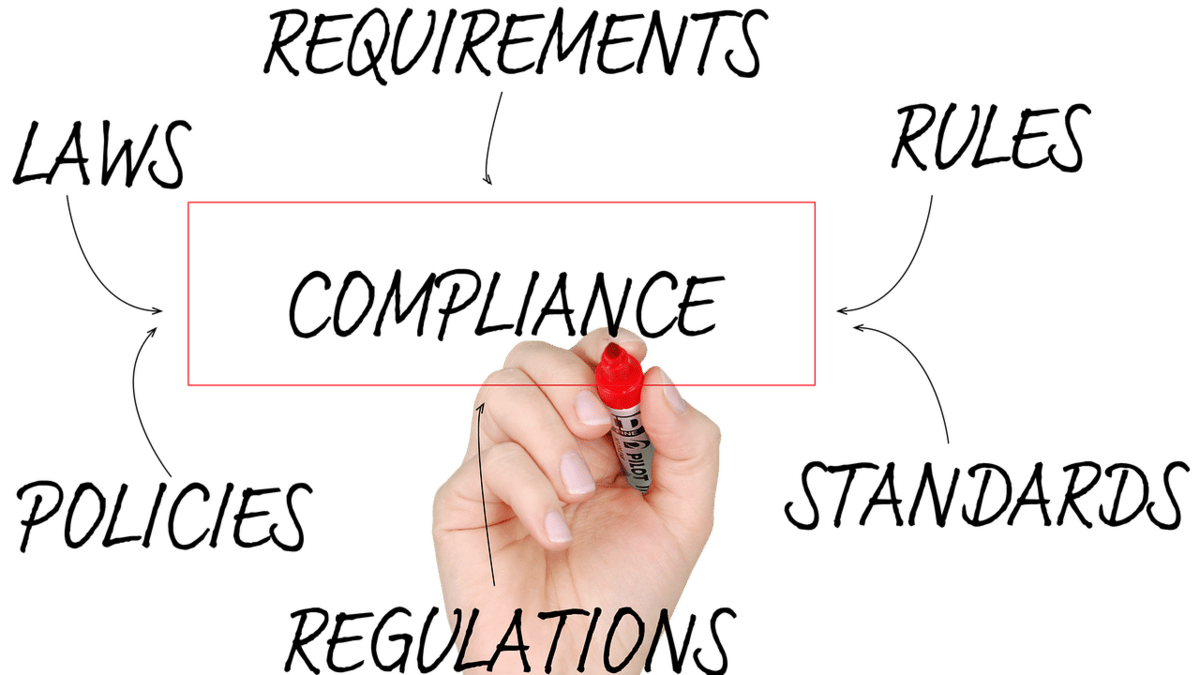Hi guys, welcome to our insightful article about the CFA level 1 ethics.
After reading this article, you’ll better understand the ethics reading in the CFA program curriculum and what it takes to pass this section of the CFA exam.
In a moment, we’ll walk you through:
Let’s jump right into it!
An Overview of CFA Level 1 Ethics
CFA level 1 ethics teaches CFA candidates how to conduct themselves in the field and how investment firms should represent their performance.
Ethics covers the code of ethics and standards of professional conduct among investment professionals.
It also talks about Global Investment Performance Standards (GIPs).
This section is in all three levels of the CFA exam, with level 1 having the highest topic weight, 15%-20%.
That’s between 27-36 questions out of 180 questions in the CFA level 1 exam.
And since ethics is in all the three levels of the CFA exam, lessons learned in level 1 are transferable to levels II and III.
So, it’s important to master level 1 to have an easy time in the subsequent levels.
Having said that, let’s take our discussion further and cover each of the CFA levels 1 ethics readings.
CFA Level 1 Ethics Reading
In the 2022 CFA curriculum, ethics readings start from 56 to 60.
Here is an overview of the sub-categories and what they entail.
Reading 1: Ethical and Trust in the Investment Profession
This is an introductory topic, giving CFA candidates an overview of ethics and its importance in the investment world.
This reading covers the role of the code of ethics, challenges to ethical behaviors, why there’s a need for high ethical standards in the investment industry, the difference between ethical and legal standards, and the framework for ethical decision making.
Reading 2: Code of Ethics and Standard of Professional Conduct
The key concepts in this reading are the six codes of ethics and seven standards of professional conduct.
The six major principles require CFA charterholders to:
- Act with integrity, competence, diligence, and respect in all their professional relationships with other participants in the global market
- Place the integrity of the investment profession and their client’s interest ahead of their own personal interest
- Exercise reasonable care and take the necessary precautions in their professional work
- Practice in an ethical manner and encourage others to uphold the ethical standards to build their reputation in the industry and promote the profession
- Promote the integrity of, and uphold, the rules governing the capital market
- Maintain and improve their professional competence and encourage other charterholders to do the same
The second part, standards of professional conduct, is the heart of the ethics exam.
Most questions on the standard of professional conduct require candidates to apply knowledge learned in class to solve ethical questions based on real-world scenarios.
Let’s now cover the seven standards, which are an integral part of the ethics topic area in the next reading:
Reading 3: Guidance for Standards I-VII
The standards of professional conduct give a comprehensive overview of the moral practices and acceptable ethical conduct for investment professionals.
Each of the seven standards of professional conduct has sub-sections, which one must understand in detail, plus their application.

Stay with us as we take you through each of the seven standards and what they entail.
Standard I: Professionalism
This standard requires candidates to have high ethical standards.
CFA program candidates and charterholders must have a framework to resolve ethical dilemmas and have knowledge of the law.
Knowledge of the law: CFA candidates and charterholders must know and comply with the rules and regulations of the country they work in, which includes national and local laws.
They must comply with the laws of licensing bodies, regulatory organizations, and professional associations.
This also includes the CFA Institute’s code of ethics and standards of professional conduct.
In the case of conflict of interest, this standard requires charterholders to adhere to the strictest regulation.
Independence and objectivity: This standard requires CFA program candidates to avoid receiving or offering gifts, compensation, benefits, or consideration to clients, as it can compromise their objectivity.
Misrepresentation: CFA candidates must not knowingly give misleading information to influence an investor’s decision.
Giving misleading information regarding investment analysis or investment decisions breaches this standard.
Misconduct: misconduct talks about professional behavior and honesty.
CFA candidates and charterholders must avoid behaviors that could negatively impact their integrity.
Fraud, deceit, dishonesty, and drunkenness are part of the behaviors that could potentially ruin the perception of their professional integrity.
Standard II: Integrity and Capital Market
The CFA Institute forbids members from participating in any activity that may falsely represent the investment market.
The institute is strict on deceitful behavior of fraudulent activities that may manipulate the investment market and break public trust.
Material nonpublic information: CFA Institute prohibits charterholders and candidates from using or causing others to use information that has not been made public and could impact market results.
Market manipulation includes information-based and transaction-based activities that may influence the investment market result.
Information-based is where one distributes misleading information to influence investors’ decisions.
Transaction-based refers to creating false impressions of the market activities using fraudulent trading strategies to lure market participants.
Standard III: Duties to Clients and Prospective Clients
This standard talks about CFA charterholders placing their clients’ interests before their own.
Loyalty, prudence, and care: clients’ needs and interest comes first at all times.
Charterholders must be loyal to clients.
They must practice due diligence, exercise prudent judgment, and act with reasonable care when guiding clients toward their financial goals.
Fair dealing: This standard calls for fair treatment among all clients.
CFA investment professionals must be fair and objective when taking investment action, making investment recommendations, or doing investment analysis.
CFAs professionals must not give some clients an advantage over others.
Suitability: Every client’s financial situation, risk appetite, investment needs, and financial goals are unique
This standard requires CFAs to tailor their investment recommendation and actions to match clients’ unique needs.
Additionally, they must assess the investment actions and update them regularly as the client’s situation evolves.
Performance presentation: Investment performance presentation must be accurate, fair, and complete.
CFA candidates and charterholders must include all the information about investment performance, fees, tax, and prior performance in their presentations.

Preservation of confidentiality: Chartered financial analysts must keep all the information about their current, former, and prospective clients confidential.
The only exception to this professional standard is when the client permits disclosure, the client is involved in illegal activities or is required by law.
Standard IV: Duties to Employers
Loyalty: This refers to loyalty to the employer.
Chartered financial analysts must act in ways that sustain the employer’s integrity.
They must use their skills and abilities to the benefit of their organization.
Further, CFAs should avoid professional activities that cause conflict with the employer’s interest.
Additional compensation arrangement: In the case of gifts, benefits, or significant perks from clients or other third parties, CFAs must first get written consent from the employer before accepting the additional compensation.
Responsibilities of supervisors: CFA professionals with staff members under their supervision must ensure they comply with the legal and ethical standards of the investment profession.
Standard V: Investment Analysis, Recommendations, and Actions
Standard five covers the responsibility of CFA charterholders to perform due diligence before making any investment recommendations to clients.
Diligence and reasonable basis: CFA members must exercise due diligence.
Financial analysts must conduct thorough research from multiple sources before giving recommendations, investment analyses, or action.
Communication with clients and prospective clients: Members should include important information about recommendations, actions, or investment analysis when communicating with clients.
They must disclose information about the risks and limitations of investment actions and activities.
This standard also calls for investment professionals to distinguish between facts and opinions when giving investment recommendations and opinions.
Record retention: Members are required to have a system to maintain all investment-related communication with clients and prospective clients, including records of investment actions, recommendations, and analysis.
The CFA Institute recommends retaining these records for seven years.
However, if there are regulations that stipulate an extended period, CFAs should comply with that.
Standard VI: Conflict of Interest
The CFA Institute attests that it’s almost impossible to avoid conflict of interest at all times and in all situations.
Thus, this standard explains how members can manage the potential risks by disclosing the compromise to clients and hopefully minimize the harm it could cause to clients.

Disclosure of conflict of interest: CFA charterholders must disclose to the employer and clients any situation that may lead to a conflict of interest and compromise their objectivity.
Priority of transactions: Clients’ investment transactions take precedence, followed by employers and, finally, CFA’s.
Referral fees: This standard dictates that members must report to the client and the employer if there is any payment they received for recommending a particular product or service.
Standard VII: Responsibilities as a CFA Institute Member
The seventh and final standard covers the responsibility of CFA charterholders to the CFA Institute and the investment profession.
Conducts as members and candidates in the CFA Program: States that members should not get involved in any activities or behaviors that may compromise the integrity or ruin the reputation of the CFA program and the CFA Institute.
Reference to CFA Institute, the CFA designation, and CFA Program: Members must not use the CFA program, CFA designation, or CFA candidacy in a misleading way to gain favors.
Reading 4: Introduction to the Global Investment Performance Standards (GIPs)
GIPs ensure that firms don’t give a false impression of their returns to boost their business.
The Global Investment Performance Standards provide a set of ethical practices that guide investment firms in consistently presenting their historical data fairly.
Complying with GIPs standards is voluntary.
And firms that wish to be GIPs compliant must comply with all the aspects of GIPs Standards as there’s no partial compliance.
The GIPs reporting standards require firms to publish investment results every five years.
Young firms should publish their results from inception.
Once a firm has complied, it must add the subsequent returns to have up to 10 years of compliance return.
Global investment performance standards recommend thorough audits either from internal or external firms.
GIPs have nine sections, including fundamentals of compliance, input data, calculations methodology, composite construction, disclosure, presentation and reporting, real estate, private equity, and wrap feel.
And that marks the end of the CFA level 1 ethics topic area.
Actionable Strategies to Pass CFA Level 1 Ethics Exam
The CFA ethics exam is tested in Lev I, II, and III.
The questions in this topic area tend to be ambiguous.
Therefore, although it’s the last reading, it’s important to allocate a considerable amount of time to get it locked down.
Here are tips to help one prepare for the CFA Level 1 ethics exam well:
Read the Ethics Section Multiple Times
Instead of reading the ethics topic area once, one should go through it severally.
Reading the same content repeatedly helps better understand the concepts and retain more information.
Part of retaining CFA ethics content is taking as many practice questions as possible weeks before the exam.
Differentiate the Standard of Professional Conduct from the Code of Ethics
Many CFA exam candidates get mixed up on the standard of professional conduct and code of ethics.
The simplest way to distinguish the two is to know that standards are seven and ethics are six.
Again, standards cover what investment professionals should do, while the code of ethics is about how to do it.
Be Thorough: Read the Case Studies
Third party study materials are great for preparing for the CFA level 1 exam.
However, when it comes to ethics, it is advisable to use the CFA curriculum because it’s detailed.

If one has sufficient time, it will help to read the ethics topic area from the CFA curriculum, paying special attention to the blue box examples.
Additionally, it will help to go through the End of Chapter (EOC) questions.
More than that, doing many practice questions and reviewing the areas that one got wrong can help one master CFA level 1 ethics.
However, if one is short of time, it is better to use third-party study materials since the CFA curriculum is thorough and would require more time.
But more than that, one should also focus on EOC questions in the CFA curriculum and blue box examples.
More importantly, one should focus on the CFA case studies.
Read the fictional scenarios and understand how the standards are applied in the different scenarios.
The CFA level 1 ethics exam focuses on the simplified versions of these case studies.
The subsequent CFA exam levels get more complicated.
Use Flashcards or Make Summary Notes
Summary notes will come in handy during revision, practice questions, and CFA ethics levels II and III readings.
It saves time and makes it easier to familiarize myself with the topic.
Flashcards make it easier to familiarize with keywords, weed out irrelevant questions and pinpoint traps in ethics questions.
Since ethics tests all the concepts bundled together, the notes and flashcards provide a great way to have a solid understanding of the code of ethics and standard of professional conduct.
Reinforce Your Learning with CFA Institute Videos
The CFA Institute provides a series of videos that cover the seven standards of professional conduct.
The videos are short, taking 10-15 minutes.
There are a total of 22 videos.
CFA candidates who learn better through visuals may find the videos extremely useful.
Conclusion
Conclusion
The CFA level I ethics is an integral part of the CFA program exam.
The CFA Institute places high value on this topic area.
It determines whether one fails or passes if their overall exam performance is at the edge of the minimum passing mark.
More than that, CFA level 1 ethics build up in level II and level III.
Even more important, this topic area is crucial in the day-to-day professional activities of a CFA charter holder.
Thus, it’s only right that a CFA candidate gives it the attention it deserves when preparing for CFA level I exams.









